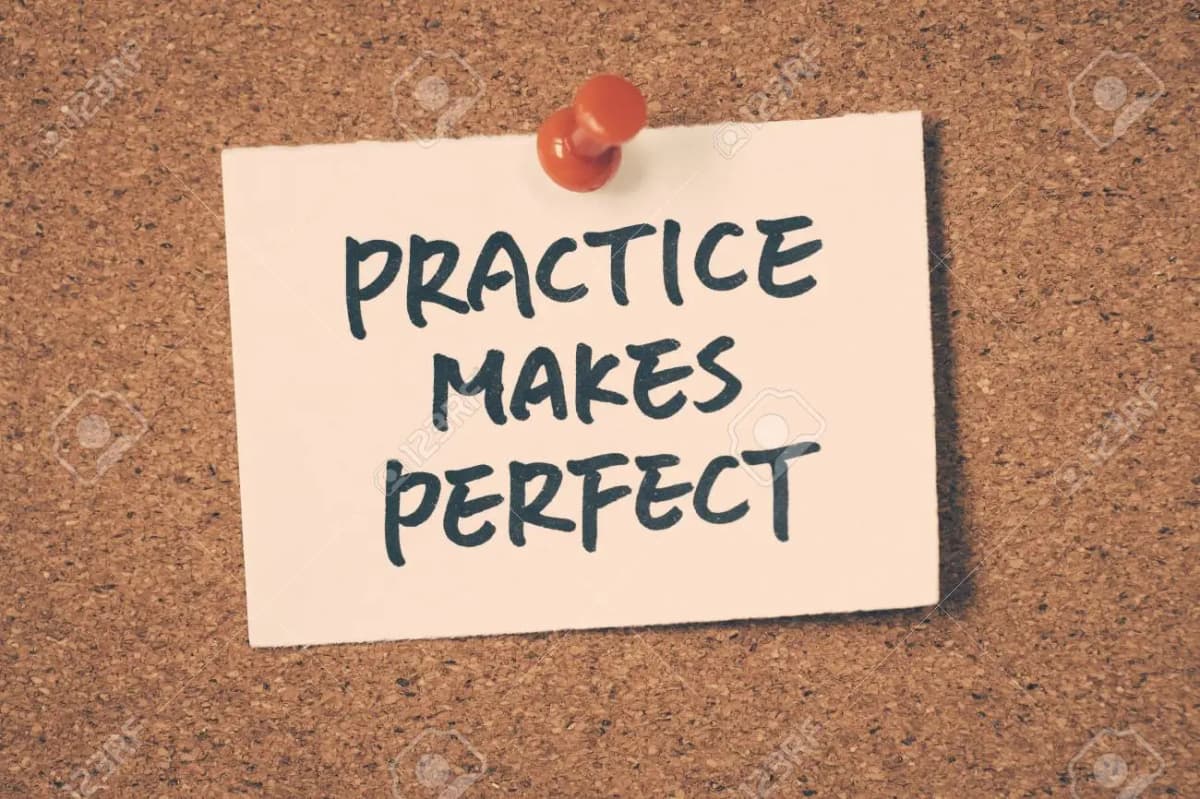One short window of time can make all the difference for the future outlook of the position you're thinking of taking.

Let's be honest. You're likely reading this article because right now, you have a job offer on your hands or the prospects of one! Congratulations! Let's make your job offer even better, shall we?
Salary negotiation crosses most people's minds, but few decide to take their chances. Studies show that salary negotiation is a skill that is not discriminatory, everyone struggles with it! A USC study shows that from a group of 440 software engineers, 43% chose not to negotiate at all!
Why is it that almost 50% of individuals choose not to negotiate?
The two biggest reasons people choose not to negotiate salary are fear of discomfort in the negotiation process or the perception of being "pushy". Why don't we do some quick math on the damage done by choosing to pass on a few minutes of discomfort?
Let's say that with negotiating, our job seeker can boost their salary by an additional $5,000. Note that $5,000 is the average increase in salary earned by negotiating.
The value in this salary bump comes from the compounding effect. An individual with a $5,000 salary bump is subject to receive an annual growth rate of 5 percent over a 45-year career. In essence, they would earn about $750,000 more during their lifetime than if they'd stuck with that first offer! Bear in mind this is from negotiation with the first job!
On average, men and women tend to hold 12 jobs in their lifetime. These are 12 separate negotiation rounds. Let's say each negotiation round takes 30 minutes. This results in just 6 hours of that person's entire work-life history of 45 years, spent negotiating. 6 uncomfortable hours in your work lifetime, could quite literally be costing you millions. The key takeaway here is to negotiate, negotiate, negotiate!
Enough talk and convincing. Let's talk about how we can approach negotiation without it compromising our job prospects. We only want to do good by trying to negotiate with our potential employers, not harm, right?
5 steps to take when engaging in compensation negotiation
- Evaluate yourself and what you have to offer
- Research market compensation average
- Prepare your reasoning for negotiation
- Practice, practice, practice! (May be skipped if negotiation can be done via email)
- Be confident and positive
Now we get to the fun part! I'm going to break down each step and discuss how you can fulfill them. When the time for negotiating your salary comes, it'll be a breeze!
Evaluate yourself and what you have to offer
Self-evaluation is a difficult skill for people to attain. We are our own worst critics. One may either be too harsh on themselves or too easy. For self-evaluation, it is critical to find the right balance of what value you bring to the company by joining while remaining cognizant of areas that need improvement.
With that it's important to consider:
- Skillset
- Career Performance
- Metrics from contributions
- Market need
Consider your skillsets and how desirable they are. Do many candidates potentially have these skills and are they in high demand?

If you were previously employed, refer back to your performance over the recent most years or months. Have you shown improvement and growth in this recent period of time?
Another critical component to consider is the metrics from your contributions. What did you do that was beneficial for your prior employer? You can evaluate these metrics in relation to company KPIs or internal improvements made. Anything goes as long as something positive came out of the work you put in.
Lastly, consider the market need for candidates like yourself. Is the market hot for individuals with your skillsets? Do you see growth in your field?
These points justify compensation negotiation. It is just crucial we be realistic and honest.
Research market compensation average
By now you should have done a heart-to-heart with yourself and see the value you bring by joining the company that extended you an offer. The next step involves research on market compensation averages.
Market compensation average awareness is really important. In the end, we know what compensation would make us go through the roof with excitement. Considering your value, your research will tell you if your expectations are too high, are realistic, or not on target!

When we are conducting our research, we need to evaluate the company whose offers we are considering as well as those of their competitors. It may seem odd to research salary offerings from companies you did not interview for. I can assure you that your company will care about its competitors' offerings. Your desired company does not want to risk losing valuable candidates like yourself to competitors!
Businesses must hire skilled employees who enable growth in order to see success. Competitive salaries demonstrate that the business values its team members as much as other employers in the industry.
When you are conducting your market compensation research, make sure to focus on the job tasks, responsibilities, and expectations as well as job titles.
Consider variables such as
- Type and size of the company
- Location
- Years of experience required
- Date salaries were reported (consider inflation and other factors that could make a salary offering less appealing than the present)
Consider these free options as resources for conducting your market compensation research: Glassdoor, Comparably, PayScale and Dice.com. In my particular case as a Software Engineer, a tried and true resource has unquestionably been levels.fyi. The salaries posted there are extremely up to date and have been on the money (pun intended).
Determine the average salary given your matching qualifications and bear in mind the higher end as well. You should be aiming for the average or better!
Prepare your reasoning for negotiation
The time comes to determine how best to apply your research. The goal in mind is to explain your skillset, demand in the market as well as competitor offerings in a respectful, but convincing manner.
The best way to accomplish this is by following these talking points:
- Express gratitude and excitement about the opportunity
- If you have an offer from another company, mention it without disclosing details
- Keep verbiage with as little specificity for your true salary expectations. Express you feel the offer needs strengthening.
- Keep the desired salary in mind and the more unrealistic higher salary. Use the unrealistic salary if directly prompted
- Focus on one or two potential areas only that need improvement in the offer
- Finish off with again expressing gratitude and excitement for the opportunity
Make sure to write your justification for your salary negotiation down, this will help in the next step.
To explain a few of these points, note that we want to be ambiguous in the beginning to enable the company to give you an unbiased adjusted offer. Specificity can be risky when negotiating.
Imagine you lowball what the company can do, they will just meet you at your number and you're leaving money on the table! On the contrary, if you give way too high of a number it could cause the recruiter to do a double-take. Most companies will still try to meet you where they can, but having a candidate with too high expectations may be discouraging.
This is why absolutely prioritize trying to control the conversation and maintain ambiguity. However, if we have to give away numbers it's still ok! We have done our due diligence for research and will give the slightly higher bound number (but not to the moon crazy). Why are we still not saying exactly what we want? We do not want to give our exact desired number because the recruiter will negotiate on their end too, with the goal of saving the company money. They will almost without a doubt offer something lower than what you asked for. If you ask for higher than your desired, they might just hit the mark on what you actually wanted! If they don't negotiate then even better, you just hit higher than your desired target.
We also want to make sure we do not ask for too many changes to the offer. This may come across as unappreciative or make you appear like an unreasonable candidate. One or two changes need prioritization. If there are other alternatives the recruiter will try to meet you with those.
Finally, your closing statement should express excitement about the opportunity. Go through the pros of the job! You can discuss the culture, focus of work, product, team, what have you. Finish with a statement that is indisputable. When determining what you want to say here, make sure to distance yourself emotionally. Objectively analyze your contributions and value and look at things from the company's perspective. What would the company want to hear from you as a positive of meeting your negotiation asks?
For instance, I would express that I want to make sure that you stay at the company for a long period of time. I would explain that this negotiation would help me realize that desire. There is nothing unreasonable about wanting to make sure you stay at that company for as long as possible!
Practice, practice, practice!
This step may potentially be skipped if you are able to perform the negotiation via email with your recruiter. This is always the best format for negotiation, as you can phrase your justification with confidence and revise as needed. When your recruiter first provides you with your offer, you can ensure negotiation takes place via email by sharing that you need time to consider the offer. Add that you will follow up with them yourself in a few days. This gives you control over the process!
Let's get back to this step if the recruiter will be the individual to follow up on the offer.
If you followed the prior steps, then you have what you should say to the recruiter and it's time to roll up your sleeves and practice!

- Practice your justification while looking in the mirror
- Practice with a friend or family member
- Make sure to sound grateful yet confident when delivering the speech
You want to make sure you are able to cleanly get through your negotiation points. It will inevitably be more challenging when the time comes and the recruiter is the one on the other end!
Be confident and positive
After you've delivered your speech to the recruiter, make sure to remain confident and positive throughout the rest of the process. Bear in mind that you already received an offer from the company. They want you to join and will try their best to meet your requirements while adhering to their own capabilities. Remember your worth and the value you would bring to the company by joining.

When you receive your counteroffer always express gratitude for the recruiter's efforts. This is critical even if the counter isn't what you want to hear! If the offer does not come back quite as you expected, oftentimes it is still within reason to try once more with negotiation. I personally would not recommend more rounds than that, however.
Salary negotiation does not have to be a daunting and unachievable task. Everyone experiences nervous energy when facing a job offer from a desirable company. It's understandable that you don't want to squander the opportunity! However, it is extremely important to keep in mind your value. Simply put, you are the best, so you deserve the best! Don't miss out on those millions by dismissing 30 minutes of discomfort. You will be grateful you are earning what you are truly worth and will perform better at your new job!
Now go out there, negotiate, and land the job AND salary of your dreams!
Remember, developers are creatures that turn coffee into code. So I'd very much appreciate if you bought me a coffee!  I’m a new writer and I will be posting very frequently on my findings and learnings in the tech industry and beyond. Join my newsletter if you would like to stay tuned!
I’m a new writer and I will be posting very frequently on my findings and learnings in the tech industry and beyond. Join my newsletter if you would like to stay tuned!
Thanks for reading again! ❤️
| Understand Open Graph Dynamic Image Meta Tags | 1 |
| Pros and Cons of Caching Data in Software | 2 |
| How to build a Modal in ReactJS (Part One) | 3 |
